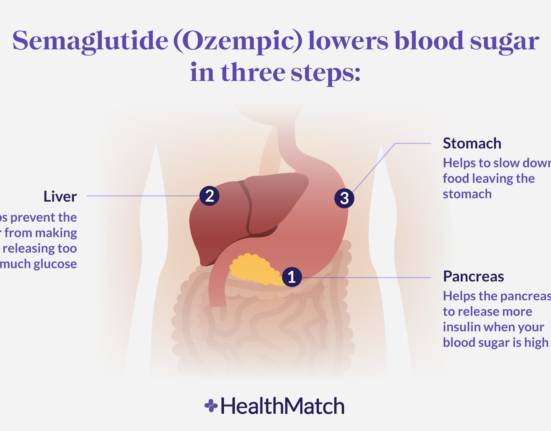Does an apple a day keep the doctor away? Advice on healthy eating and weight loss can be found from health professionals, well-meaning parents, fitness fanatics, image-conscious celebrities, and companies that make billions of dollars each year selling groceries and nutritional supplements. Some of this information is dubious, and some is even harmful. Unfortunately, false food myths can persist long after solid science debunks them. This can lead to a host of problems as people engage in what should be a pleasurable everyday activity: eating.
Read More: Learn Regarding Clenbuterol
Here are three common food myths that don’t hold up to scrutiny.
Myth 1: Organic products are more nutritious.
Fruits and vegetables certified “organic” by the US Department of Agriculture are grown without the use of synthetic fertilizers or pesticides. This reduces the impact of agriculture on the environment. According to a 2015 Consumer Reports study, this makes organic foods 47% more expensive on average than conventional foods.
Read More: Job in Healthcare
Some health enthusiasts will argue that organic produce tastes better and makes you feel better, but are they really more nutritious? Research says no. A 2012 Stanford University study published in the Annals of Internal Medicine found no significant differences in nutrition or health risks between organic and conventionally grown produce. Conventional products contain the same vitamins, minerals, antioxidants, proteins, lipids, and other nutrients as organic products.
A 2017 study by the Centers for Disease Control found that only 10% of American adults eat the recommended number of fruits and vegetables. Since a healthy diet lowers your risk of chronic disease, you should be able to enjoy your fruits and vegetables without worrying about the “organic” label. So, does an apple a day keep the doctor away? It certainly can help, whether the apple is “organic” or not.
Myth 2: Fresh produce is more nutritious than frozen, canned or cooked
A fresh salad with garden greens is often presented as an ideal way to eat vegetables, while the cafeteria staples of boiled peas and canned peaches are often presented as less nutritious options. So, is fresh produce better for you than frozen, canned, or cooked produce? Not often.
According to a 2016 study in the Journal of Food Composition and Analysis, fresh produce loses nutrients over time as it travels from farm to market, perhaps sitting in the fridge for a few days. To survive the customer journey, fresh produce is often picked before it is fully ripe. By contrast, frozen and canned produce is often harvested at peak ripeness and processed shortly after, which retains nutrients.
Cooking fruits and vegetables destroys some heat-sensitive vitamins like folate and vitamin C, but can also unlock other nutrients. A 2008 study in the Journal of Agricultural and Food Chemistry found that cooking carrots increases their nutritional value. Also, cooking vegetables can often allow you to eat more. A large bowl of baby spinach can be sautéed into a flavorful side dish that is easy to eat and digest.
Perhaps most importantly, fresh fruits and vegetables are not always available at affordable prices. They can spoil in days or even weeks, and people don’t always have time to prepare them. Frozen and canned products provide an easy, cost-effective and reliable way to add fruits and vegetables to every meal.
Myth 3: Low-fat or fat-free is always healthy.
Fat has been unfairly maligned. We now know that there are “good fats” and “bad fats,” but many people still associate fat consumption with weight gain. When faced with a crowded grocery store, many consumers look for packages labeled “low-fat” or “fat-free,” but these aren’t always the healthiest options.
There are three main types of fat: unsaturated fat, saturated fat, and trans-fat. According to the Harvard School of Public Health, unsaturated fats are liquid at room temperature and are abundant in olive oil, canola oil, avocados, nuts, and fish. Unsaturated fats are beneficial fats that can improve cholesterol levels and protect against heart disease.
Saturated fats are solid at room temperature. In the US, common sources of healthy fats








5 Comments